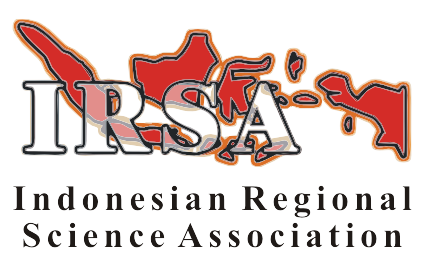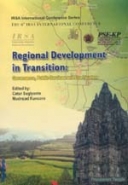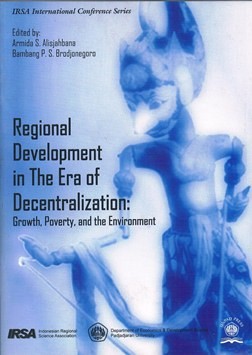September 1, 2007
Empowering Regional Economic Development toward Sustainable Poverty Alleviation

| Release Date: | September 2007 |
| Editor(s): | Candra F. Ananda, Budy P. Resosudarmo, Suahasil Nazara |
| ISBN: | 979-525-145-7 |
| Publisher: | Faculty of Economics – Brawijaya University |
| Series: | IRSA Book Series on Regional Development No. 6 |
| Price: | Sold Out |
This book contains 9 papers selected among papers presented at the 8th Indonesia Regional Science Association (IRSA) International Conference entitled :”Empowering Regional Economic Development Toward Sustainable Poverty Alleviation”. There were 80 papers presented in the conference, and 30 of them were submitted to be included in the book. In selecting the papers, special attention was given to papers written by those who recently graduated with a master of the PhD program. The conference was held on August 18-19, 2006, at Brawijaya University, Malang, East Java. It was conducted by the IRSA, the faculty of economics, Brawijaya University, and the East Java Development Planning Agency. The conference would not have been possible without generous financial support from the East Java Development Planning Agency and the Research Center for Economic Policy (PPKE), Faculty of Economics – Brawijaya University, or the active participation of those attending the conference.



